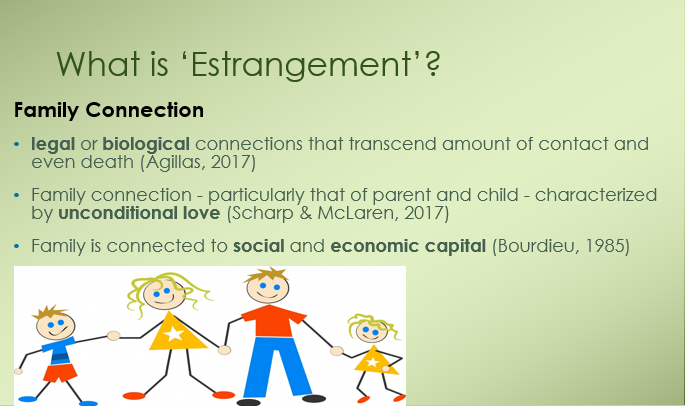 Lawrence Friedman’s 2013 biography of Erich Fromm ‘The lives of Erich Fromm: Love’s prophet’ is a good place to start if you are unfamiliar with Fromm’s work. Even if you are it is an excellent reminder of his contribution and the impact of his publications, such as Escape from freedom and The sane society, during his lifespan. It is good to be reminded: Fromm achieved considerable fame as a public intellectual of some repute, having already served his time contributing to the interdisciplinary character of the Frankfurt School in the 1930s. While his later work sold in the millions and are important in their own right, his early essays such as ‘The state as educator’ (1930) and ‘Politics and psychoanalysis’ (1931) are arguably just as significant and show a thinker willing to traverse disciplinary boundaries without fear of censure. Friedman is also right to emphasise the value of Fromm’s contribution to the German Worker Study of the 1930s, amongst other key publications of the Frankfurt School.
Lawrence Friedman’s 2013 biography of Erich Fromm ‘The lives of Erich Fromm: Love’s prophet’ is a good place to start if you are unfamiliar with Fromm’s work. Even if you are it is an excellent reminder of his contribution and the impact of his publications, such as Escape from freedom and The sane society, during his lifespan. It is good to be reminded: Fromm achieved considerable fame as a public intellectual of some repute, having already served his time contributing to the interdisciplinary character of the Frankfurt School in the 1930s. While his later work sold in the millions and are important in their own right, his early essays such as ‘The state as educator’ (1930) and ‘Politics and psychoanalysis’ (1931) are arguably just as significant and show a thinker willing to traverse disciplinary boundaries without fear of censure. Friedman is also right to emphasise the value of Fromm’s contribution to the German Worker Study of the 1930s, amongst other key publications of the Frankfurt School.
Friedman’s book is strong on illustrating Fromm’s development as a public intellectual, especially during his time living in the United States. One section in this regard that stands out details the now somewhat forgotten series of exchanges between Fromm and Herbert Marcuse in Dissent magazine between 1955-56 (you can find some of the exchanges in their original form here). Another alumnus of the Frankfurt School, Marcuse was also starting to build a name for himself as a public intellectual in some influential circles, having recently published Eros and civilisation. It was one of the chapters from this book that, in modified form, found itself at the centre of the Dissent debate between Fromm and Marcuse.
This chapter, ‘a critique of neo-Freudian revisionism’, essentially laid into Fromm’s ideas and resulted in a ‘caustic and uncivil debate’ according to Friedman (p. 193) that ‘grew into one of the most intriguing exchanges in postwar intellectual history’. This debate, which to some might appear obscure and even irrelevant in today’s intellectual climate (although to be fair, it’s not difficult to see echoes in contemporary social theory), revolved around the place of Freud’s ideas in theories of contemporary social transformation – or more accurately, the place of specific readings of Freud in these debates. Freud was a significant figure in early Frankfurt school theorising – Adorno and Horkheimer were keen on him, as were others on the left in the 1930s (Freudian theory was particularly fashionable at the time).
In essence, Marcuse attacked Fromm for not being Freudian enough – i.e., for de-emphasising the importance of instinctual drives when it came to the possibilities of social transformation:
The playing down of the biological level, the mutilation of the instinct theory, makes the personality definable in terms of objective cultural values divorced from the repressive ground which denies their realisation. In order to present these values as freedom and fulfilment, they have to be expurgated from the material of which they are made (Marcuse, cited in Friedman, 2013: p 193).
This critique sparked a series of exchanges between the pair, resulting in what critics at the time decided was a result for Marcuse – that he had ‘bested’ Fromm (Friedman, p. 196). One can debate whether or not this was the case, as indeed one can debate the relative benefits of ‘surplus repression’ and ‘social character’. Of course, discussions over the source of resistance/human flourishment/societal transformation represent a crucial part of the lexicon of social theory. One should also take time, however, to consider what the Dissent debate says about the rise of these (neo)Marxist public intellectuals. While Friedman acknowledges the damage done to Fromm’s reputation in ‘important intellectual circles’ which did much to make him a ‘forgotten intellectual’ in those same circles, it did little to dent his popularity among the reading public, his general influence expanding in the 1950s thereafter. Bested or not, Fromm’s books subsequently sold in the millions, underscoring, as Friedman puts it ‘a gap between academic and popular discourse’ (p. 197).
This discursive gap, it could be argued, is precisely what public intellectuals are supposed to bridge – that is their function. In this case, what could be characterised as intellectual monism or even faddism had no real bearing on this gap, instead resulting in important intellectual debates being reduced to insults over who was the ‘true’ Freudian. It turns out that the public, eager to read about freedom, human potential and democracy, didn’t care about such squabbles among the left. Such caustic and uncivil debates might satisfy the desires of the few via intellectual backslapping (instinctual or not), but their value in terms of intellectualising public life and the public sphere is debatable, at best.










